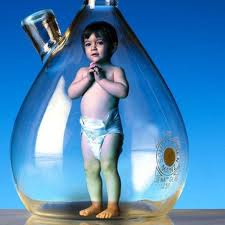 The UK is set to legalize in vitro fertilization with three parents: the fetus will thus have the DNA of three different people. For a member of the Academy of Life, approval of such testing is likely to pave the way for “improper use of the medicine and transformation of genetic selection into a real option.” In India, surrogacy has become a million dollar industry.Mumbai (AsiaNews) – “Creating designer babies is alarming, immoral and dangerous. These experiments are a return of eugenics” says Pascoal Carvalho, a doctor in Mumbai and member of the Academy for Life. Commenting on the news that UK the is about to become the first country in the world to legalize in vitro fertilization with three different donors: the mother, the father and a “donor”, he says “human genetic engineering is a reality and that the science of eugenics has now been validated beyond question – it has definite potential for being misused.” .”
The UK is set to legalize in vitro fertilization with three parents: the fetus will thus have the DNA of three different people. For a member of the Academy of Life, approval of such testing is likely to pave the way for “improper use of the medicine and transformation of genetic selection into a real option.” In India, surrogacy has become a million dollar industry.Mumbai (AsiaNews) – “Creating designer babies is alarming, immoral and dangerous. These experiments are a return of eugenics” says Pascoal Carvalho, a doctor in Mumbai and member of the Academy for Life. Commenting on the news that UK the is about to become the first country in the world to legalize in vitro fertilization with three different donors: the mother, the father and a “donor”, he says “human genetic engineering is a reality and that the science of eugenics has now been validated beyond question – it has definite potential for being misused.” .”
According to British researchers working on the project, in “three way” invitro fertilization eliminates the so-called “mitochondrial diseases”, a series of genetic defects transmitted only from mother to child. The female egg is composed of a core, inside which is located the mitochondrion, organelle that provides energy during the cell multiplication, which will then form the fetus in all its parts (organs, tissues, muscles, etc.).. In case of problems with the mitochondria, the energy necessary for the development of cells in an embryo is reduced, thus giving rise to possible defects in the fetus. However, the mitochondrion itself does not determine the physical or genetic characteristics of the embryo.
Dr. Carvalho, who has obtained a degree in Immunology, explains how in vitro fertilization with three donors works. In this IVF treatment, the mitochondria of the original egg is removed if there is a defect, and replaced by mitochondria from a healthy woman, minimising the chances of genetically-transmitted birth defects”. At this point the egg “compound” is fertilized with the sperm of the father. The problem, notes the doctor, “is that even though most of the DNA is located in the chromosomes of the nucleus, the mitochondria also has a ‘its’ DNA, known as ‘mitochondrial DNA’.” This genetic material “contains 37 genes, all essential to the proper functioning of mitochondria. For this reason, some features of the ‘third parent’ could be passed on”.
Carvalho, who is also a member of the commission for human life, specifies: “Thousands of embryos will need to be produced and experimented upon in developing these techniques. The destruction of embryos in the IVF process requires the destruction of human which is sacred.” “Besides – he said – certain limits have already been exceeded. We are already witness to moving boundaries with other IVF-related technologies, IVF already allows doctors to do genetic testing prior to implantation. Gender selection is possible, and with further technical refinements genetic “enhancements” might become an option.”
In vitro fertilization is much debated in India, which has become a destination for medical tourism for years thanks to a vague regulation on the subject. In particular, surrogacy is increasingly widespread in the country: legalized by the Supreme Court in 2002, today it is a million dollar industry. In Mumbai alone there are between 70 and 80 centers for assisted reproduction and just over 200 in the State of Maharashtra. Recently, Shah Rukh Khan, a Bollywood superstar, and his wife had their third child through a surrogate mother, opening a major debate across the country.
Ti è piaciuto l'articolo? Sostienici con un "Mi Piace" qui sotto nella nostra pagina Facebook



























